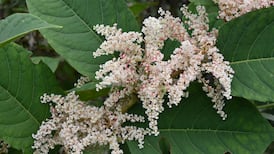There was an air of upbeat defiance among the producers populating the food hall at Bloom on Sunday afternoon as they presented themselves to the public in weather and economic conditions which could best be described as miserable.
Talk of rising prices, increased costs and increasingly intense pressure on supply chains was never too far away but the artisans and the food adventurers who had set up stall were still glad to be out meeting people face to face and selling everything from beetroot juice to bangers and nut butters.
While Sunday’s proceedings might more aptly have been dubbed Gloom thanks to the blanket of cloud which sat stubbornly over the Phoenix Park, hardy perennials were not deterred by the rain, which varied from the drizzly to the driving.
Many of the food producers were products of the pandemic, including Gráinne Mullen, a chocolatier from the west of Ireland.
READ MORE
The chef started making chocolates in the kitchen of her family home as the Covid lockdown began and has grown the business significantly since then. “The pandemic was challenging but we are facing a whole new set of challenges now,” she said.
“Prices are increasing all the time, so we need to adapt. We still want to use the best-quality ingredients, locally sourced where possible. I think consumers are definitely willing to pay more once they know it’s an Irish product and one which is handmade,” she said.

Harry Colley was also a chef, selling nut butters on the side in pre-pandemic times, but now he is almost exclusively focused on Harry’s Nut Butters. “I lost all those other gigs and I just like settled on that one thing that I had left,” he said.
His business has been hit hard by price hikes, with supplies of sunflower oil, a key ingredient, dwindling all over the world as a result of Russia’s invasion of Ukraine just over 100 days ago.
“With the war, the price has been surging and that has led to the price of all the other oils going up too. We’re looking at alternatives,” Colley said. “But so is everybody else, you know, so we are taking it day by day, we’re trying to get ahead of it as much as possible.”
He said he was very reluctant to pass on price increases to consumers. “What I really want to be doing with Harry’s is to try and make it cheaper and more accessible.”
Less than four years ago, Anne Marie Feighery went in search of beetroot juice for her father Billy. She could find nothing that was locally produced so set about changing that.
Using beetroot grown on the family farm in Offaly she started pressing her own juices. The juices are now sold in dozens of supermarkets around the country and have won multiple food awards and if the line of people looking to buy from her at Bloom was anything to go by, she can rest assured that the beet will go on.
Like all the other producers she has had to contend with higher input costs but is doing her best not to pass on the costs to consumers. “I think it is important we keep the price point where it is,” she said, adding that she could to with help from the State in that regard.
She marvelled at how the family farm’s beets in their raw form are free from VAT but once she presses and bottles them she has to pay the same rate of VAT as any sugar- and additive-laden soft drink on the market.
There was also a queue at the Barry John sausage stall, which was manned by owner Barry Crowe. The pork industry has been hit hard by rising costs of feed, fertiliser and energy and it is having a real impact on Crowe’s business.
“It is tough at the minute and we’re trying not to pass on the higher costs as much as possible. But I think lot of people are understanding now ... We have had a great few days and hopefully things will get easier soon.”
















